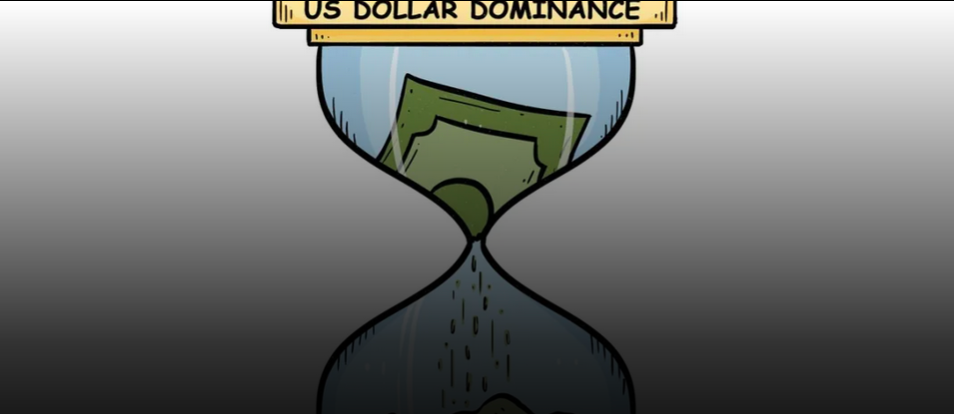By Prof. Alfredo Jalife-Rahme *
The hypothesis has been defended here that the war in Ukraine gets a multidimensional nature when the military battlefield has been extrapolated to two serious crises of global impact –energy and food– and, above all, to one in the Global South that seeks to break free from the US dollar through the very fashionable de-dollarization.
In my opinion, the so-called de-dollarization entails three different paths, schedules, and situations:
1. Short-term trade de-dollarization: when there has been a sharp decline in trade with the US dollar (note: not to be confused with other types of dollars, v. gr., Hong Kong, Singapore, Canada, Australia, New Zealand, etc.), which has favored the advent of the petro-yuan and the decline of the petro-dollar.
2. The paradox of de-dollarization simultaneously with the revaluation of the dollar. While commercial de-dollarization occurs, a revaluation (sic) of the dollar occurs simultaneously, used many times as a “financial weapon“, to punish its enemies, with its corollary of capital flight, as is the case with many emerging market currencies such as the Argentine Peso, Pakistani Rupee, Turkish Lira, Lebanese Pound, Kenyan Shilling, South African Rand, and so on.
Now that I have traveled through 10 (sic) countries for cultural tourism –from the Middle East, through the Indian subcontinent, to Indochina/Hong Kong–, I have experienced firsthand the omnipotence of the dollar and its vicissitudes with its exchange rate. My personal experience has nothing to do with commercial de-dollarization or with the de-dollarization of the reserve currency, today the hegemonic dollar.
3. De-dollarization in the medium term: loss of the status of the dollar as a reserve currency.
So when the term de-dollarization is peremptorily and recklessly addressed, one would have to be extremely careful in specifying which of the three de-dollarizations referred to is in question.
Perhaps the renowned Brazilian geopolitician Pepe Escobar is hyper-optimistic when he is enthusiastic about a solid currency of the Global South and that this today can reach the conjunction of three powerful geoeconomic blocs: the BRICS+ – where up to 41 (sic) countries queue to enter the 22 August at the Johannesburg Summit (South Africa) – the Shanghai Group and the Eurasian Economic Union.
According to the strategists of the megabank JP Morgan, quoted by the globalist and sinophobic Bloomberg, “the markets are not fully reflecting the risk of a rapid and deep decline of the status of the greenback as the currency of choice for reserves (mega-sic!) and global trade, a process known as de-dollarization. It also leaves the expensive dollar at its historical base .” Here, JP Morgan addresses the three different tracks of de-dollarization.
According to JP Morgan strategists, if US-China tensions escalate, there will be further global fragmentation, likely leading to de-globalization (mega-sic!) of trade and finance, while it could also lead to de-dollarization.
Among the main factors that may threaten the dollar’s hegemony in the long term (sic) is political dysfunction in the United States, which may block efforts to manage the national debt.
Unanimously, China’s economic reforms, from easing capital restrictions to promoting market liquidity, also threaten the supremacy of the dollar.
Perhaps the best example is the Chinese currency, the yuan, which in the Global South would be the strongest to contend with the dollar when the petro-yuan is going getting stronger and stronger the petro-dollar, while the Chinese currency has been devalued (mega-sic!) of around 4.8 percent against the dollar. The same Chinese strategists argue that the replacement of the dollar as the reserve currency is within a minimum horizon of five years.
* Professor at the National Autonomous Universality of Mexico (UNAM), author of several books on geopolitics and political economy.
This article previously appeared in the Mexican daily newspaper La Jornada here. Translation by UWI.

















Leave a Reply